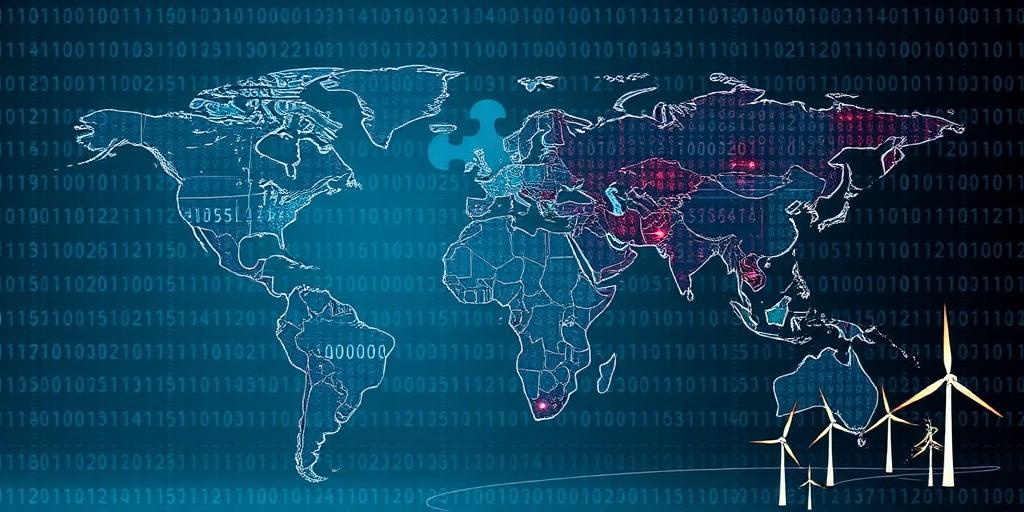The Evolving Landscape of Geopolitics: Predictions and Analysis
Geopolitics, the interplay of geography and politics on international relations, is in constant flux. Understanding its trajectory is crucial for businesses, policymakers, and anyone seeking to navigate an increasingly complex world. This article offers predictions and analysis on the future of geopolitics, examining key trends and potential disruptors.
Shifting Power Dynamics
- The Rise of Multipolarity: The era of unipolar dominance is waning, giving way to a multipolar world with multiple centers of power. China's economic and military growth is a primary driver, but other regional powers like India, Brazil, and Indonesia are also gaining influence.
- US-China Competition: The strategic competition between the United States and China will likely intensify across various domains, including trade, technology, and military presence. This rivalry will shape global alliances and influence international norms.
Technological Disruptions
- AI and Geopolitics: Artificial intelligence (AI) is poised to revolutionize military capabilities, economic competitiveness, and societal control. Nations that lead in AI development will gain a significant strategic advantage, leading to new forms of geopolitical competition.
- Cyber Warfare: Cyberattacks will become more sophisticated and frequent, targeting critical infrastructure, government institutions, and private sector entities. Cybersecurity will be a central element of national security and international relations.
Resource Scarcity and Climate Change
- Climate-Induced Conflicts: Climate change will exacerbate existing resource scarcity, leading to conflicts over water, land, and energy resources. Regions vulnerable to climate impacts, such as the Arctic and Sub-Saharan Africa, will face increased instability.
- The Energy Transition: The shift towards renewable energy sources will reshape global energy markets and geopolitical alliances. Countries that control critical minerals for renewable technologies will gain influence, while fossil fuel-dependent nations may face economic challenges.
Global Governance and Institutions
- The Crisis of Multilateralism: International institutions like the United Nations and the World Trade Organization are facing increasing challenges to their legitimacy and effectiveness. Geopolitical tensions and diverging national interests are undermining global cooperation.
- Regionalism and New Alliances: As multilateralism weakens, regional organizations and strategic alliances will play a more prominent role in addressing security and economic challenges. Examples include the European Union, ASEAN, and various security partnerships.
Geopolitical Flashpoints to Watch
- The South China Sea: Tensions in the South China Sea will persist as China asserts its territorial claims, potentially leading to military confrontations with neighboring countries and the United States.
- Eastern Europe: The conflict in Ukraine will continue to shape the geopolitical landscape of Eastern Europe, with implications for NATO-Russia relations and European security.
- The Middle East: The Middle East will remain a volatile region, with ongoing conflicts, proxy wars, and shifting alliances among regional and global powers.
Navigating the Future of Geopolitics
- Strategic Foresight: Businesses and policymakers need to invest in strategic foresight capabilities to anticipate geopolitical risks and opportunities. Scenario planning and horizon scanning can help organizations prepare for various future scenarios.
- Adaptability and Resilience: In an uncertain world, adaptability and resilience are crucial for navigating geopolitical challenges. Diversifying supply chains, building robust cybersecurity defenses, and fostering international partnerships can enhance resilience.
- Ethical Considerations: As technology and geopolitics become intertwined, ethical considerations must guide decision-making. Ensuring fairness, transparency, and accountability in the development and deployment of AI and other technologies is essential.
Conclusion
The future of geopolitics will be shaped by shifting power dynamics, technological disruptions, resource scarcity, and the evolution of global governance. By understanding these trends and potential disruptors, businesses, policymakers, and individuals can navigate the complexities of the international landscape and contribute to a more stable and prosperous world. Staying informed and adaptive is key to thriving in an era of constant geopolitical change.









